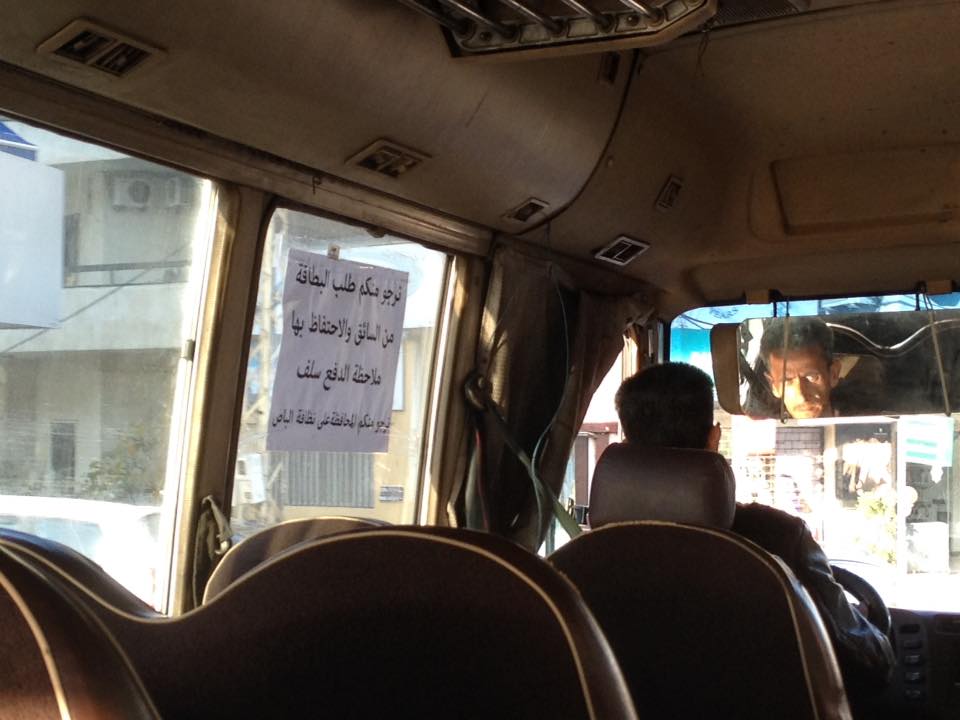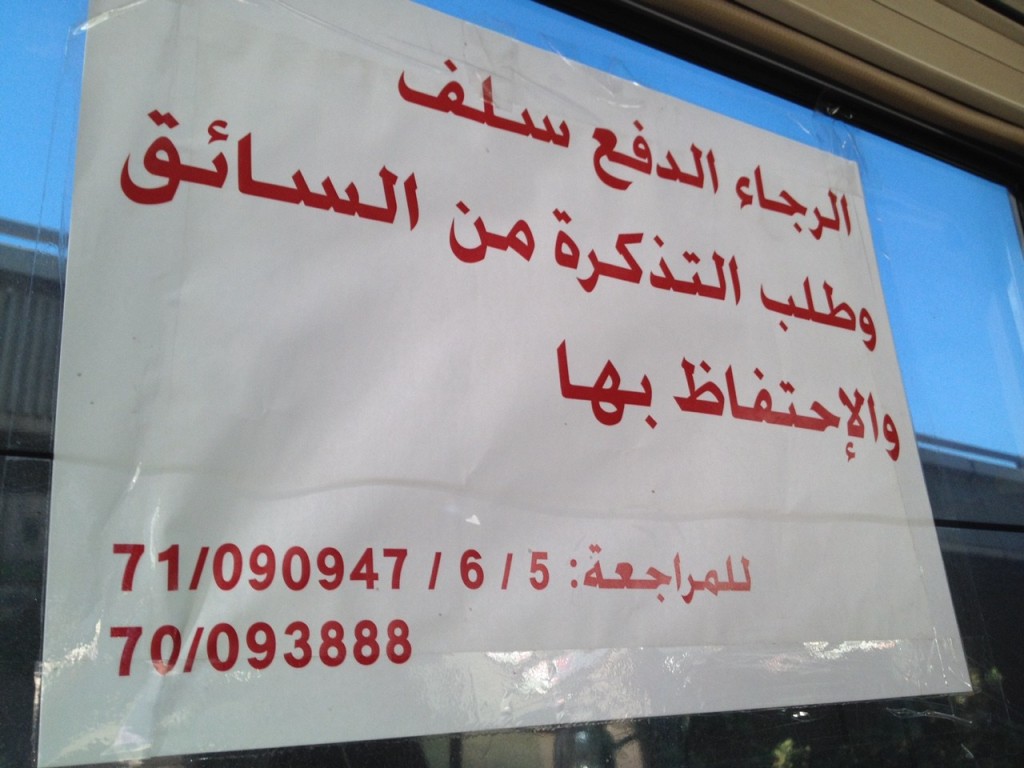One of our favorite things to do is meeting with people who are curious about our project; not only do we get a chance to dive into topics we don’t always post about, but through these discussions, we are also reminded of the importance of issues we’ve become accustomed to as bus riders.
In one such conversation yesterday, we recalled why we’re so insistent on following the grain of the public transport system in Lebanon as it already exists: at the heart of this ‘ethos’ is the simple recognition of the fact that even though reforms are needed, reformers are not always necessary. For all its faults and challenges, the existing system — as a network of service providers and service receivers — already has the seeds of renewal within it. If we want to really notice them within the “chaos,” we should be stubbornly modest in our approach to the sector.

Here we see the return of a sign that showed up on a few buses two years ago, when bus tickets were first introduced on the Number 5/8. The language is different this time, but the point is the same: the bus route has organically developed its own regulations (“take a ticket and keep it with you,” “payment is upon entry,”, etc.), with no activist campaign or legal reform or ministerial edict imposed from above.
Perhaps this kind of service standardization is too small to make a big deal about, but when we realize what a sign like this means, we start to notice other self-organized features that are worth celebrating:>/p>
Who convinced bus owners that children ought to ride for free? Who forced the young to give up their seats for the not-as-young? Who figured out the emergency protocols for what to do when a series of delays causes one driver to abandon his trip halfway so he can make it in time for his second job as a school bus operator?
We have big dreams for our city, like so many of you out there, but because we dream big, we insist on keeping our eyes and ears open, so that the size of our hearts can match up with our dreaming.
